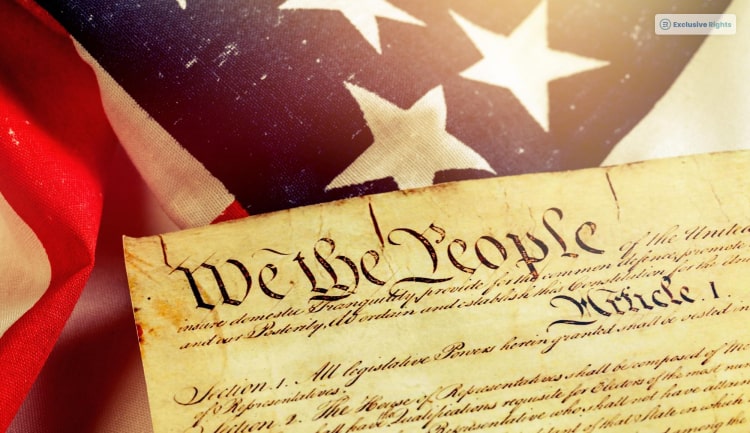
Table Of Contents
- The Right To A Free And Fair World: A History
- Right To A Free And Fair World International Instruments
- Right To A Free And Fair World Established: US Constitution
- First Amendment to the US Constitution:
- Fourteenth Amendment to the US Constitution:
- Fifteenth Amendment to the US Constitution:
- Nineteenth Amendment to the US Constitution:
- Twenty-Sixth Amendment to the US Constitution
- Due Process and Equal Protection Clauses of the US Constitution:
- Wrapping It Up!
A Free And Fair World: Embracing The Right To A Free And Fair World
The right to a free and fair world is a fundamental right enjoyed by all human beings. It entails a society where the rights and freedoms of each individual are respected, and there is justice, equality, and fairness in the workings of the community. This fundamental right guarantees an individual will have equal opportunities, resources and decision-making power regardless of where they come from. Adherence to human rights, the rule of law, freedom from discrimination and inequality, and a democratic form of government are all integral to this fundamental right. This fundamental right aims to create inclusive societies, harmony, peace, and overall well-being of all individuals.
The Right To A Free And Fair World: A History

The notion of an individual’s right to a free and fair world dates back to ancient times. In ancient Rome and Greece, philosophers believed that an individual possesses inherent rides by the very virtue of being human. They believed that these rights were worth protecting. However, with the 18th century came the Enlightenment period. During this significant period, the Human Rights concept gained momentum.
Right To A Free And Fair World International Instruments

The Universal Declaration of Human Rights came into existence in the United Nations general assembly of 1948. It codified the principles of all human rights throughout the world. This codified version also recognized the right to a free and fair world by guaranteeing the principles of equality before the law, rights against discrimination, and an individual’s right to participate in political and socio economic events of society.
The United Nations protects a person’s right to a free and fair world by access to fair election procedures, requests to participate in government decision-making procedures, and each individual’s equal protection under the law.
International Covenant on Civil and Political Rights (ICCPR) is another treaty that elaborates on individuals’ civil and political rights. It includes the right to vote, freedom of expression, freedom of peaceful assembly and association, and an individual’s freedom to access justice.
The International Convention on the Elimination of All Forms of Racial Discrimination (ICERD)1965 is another instrument furthering this fundamental right. It prohibits racial discrimination and strives to promote equality.
The African Charter on Human and Peoples’ Rights,1981, was brought into effect by the African Union. It guarantees the human rights of participating in government procedures and policies, the furtherance of equal protection of the law, and one’s due right to public services of their nation.
The European Convention on Human Rights (ECHR) of 1950 served a similar purpose. The Council of Europe established it. This convention, ECHR, safeguards various fundamental rights of citizens of the world. It includes the right to free and fair elections, freedom of expression, association, to get access to a fair trial.
These international instruments serve the various governments, organizations, and individuals of the nations of the world. They promote an individual’s right to a free and fair world. They form the base for the superstructures of Constitutions, legislation, advocacy, and judicial mechanism worldwide.
Right To A Free And Fair World Established: US Constitution

These are the constitutional measures through which the government of the United States establishes and protects the right to a free and fair world for its citizens within its jurisdiction.
First Amendment to the US Constitution:
The First Amendment guarantees to all citizens of the United States these rights: the right to free speech for all citizens, the freedom of the press in the nation, and the right to peacefully assemble. These rights allow individuals to freely express their opinions and grievances. They also take part in shaping public policies. This contributes to the right to a fair society.
Fourteenth Amendment to the US Constitution:
The Fourteenth Amendment ensures the following to the US citizens: Equal protection of the law and under the law. It prohibits discriminatory practices. The right to be treated fairly treated in all walks of life ensures a fair and free world.
Fifteenth Amendment to the US Constitution:
This prohibits the denial of voting rights to any citizen of the US. Race, color, or any other factor will not stand as a limiting point to any right of a citizen. This amendment ensures elections are free, fair, and democratic in nature.
Nineteenth Amendment to the US Constitution:
This grants women of the US the right to cast a vote. This establishes a free and fair system of gender equality.
Twenty-Sixth Amendment to the US Constitution
This Amendment lowers the voting age for a resident of the US to 18 years of age. It makes the US democratic system more open to the youth of the nation.
Due Process and Equal Protection Clauses of the US Constitution:
The Fifth and Fourteenth Amendments added these to the Constitution. These guarantee individuals fair access to the legal system.
Wrapping It Up!
The right to a free and fair world has evolved in its scope over the years. The US Supreme Court delivered numerous to further interpret the fundamental right to a free and fair world. These rulings have noted important issues like citizens’ voting rights, finances, free speech, and equal protection under the law. The scope continues to evolve and shape the democratic framework of the US every day. We hope you enjoyed reading this article. Please let us know if you found it helpful! Did you know that the right to a free and fair world is a cornerstone of democracy and human rights? This very fundamental right guarantees your right to vote.





